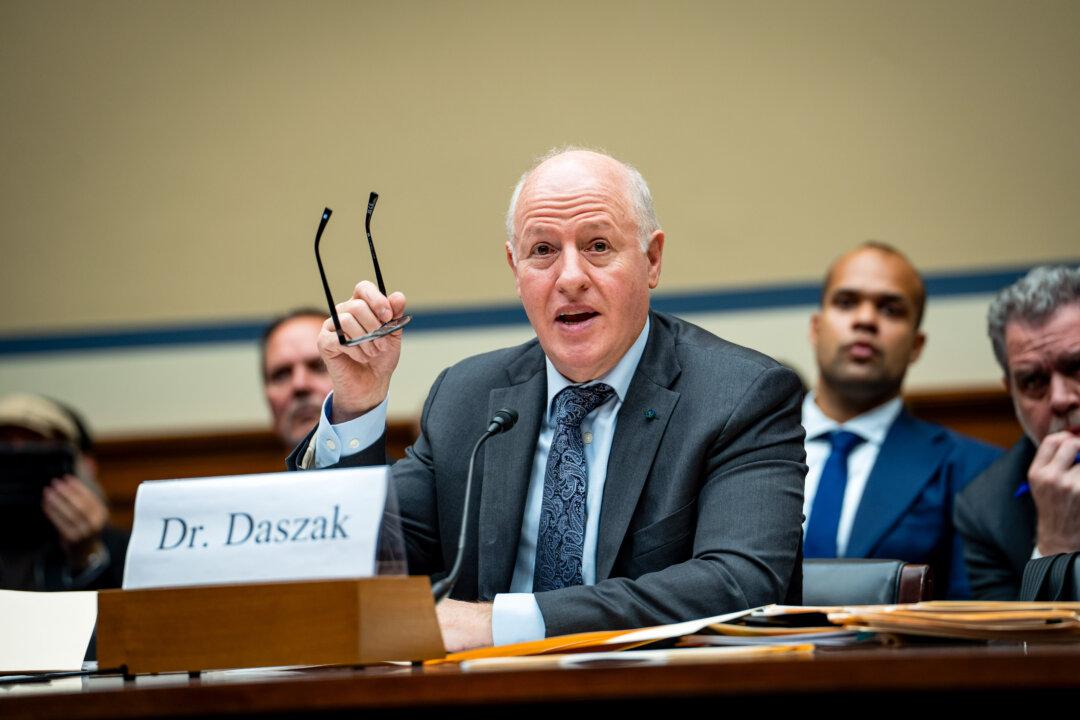The House committee that is investigating circumstances regarding the COVID-19 outbreak has threatened to issue a subpoena for more answers from the scientist who worked closely with the Chinese lab in the city where the first COVID-19 infections occurred.
The U.S. House of Representatives Select Subcommittee on the Coronavirus Pandemic issued a statement on social media platform X on May 26, calling on Peter Daszak, president of EcoHealth Alliance, to comply with the committee’s requests for information related to the role played by EcoHealth Alliance in risky gain-of-function research in China on bat coronaviruses.





